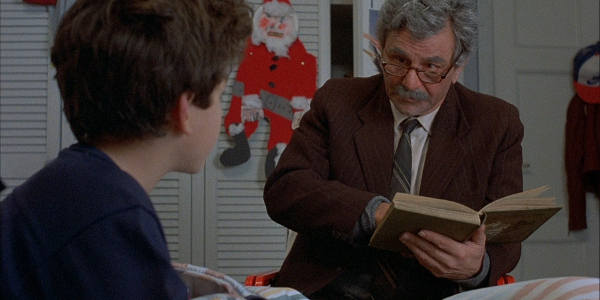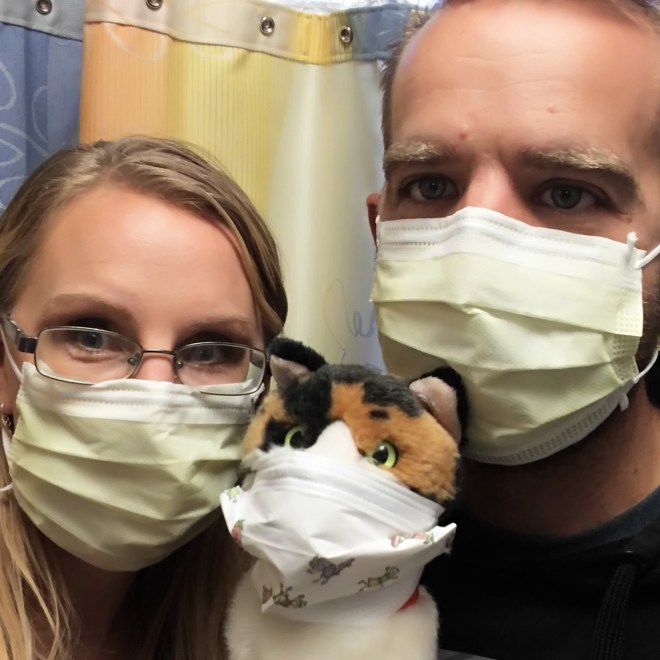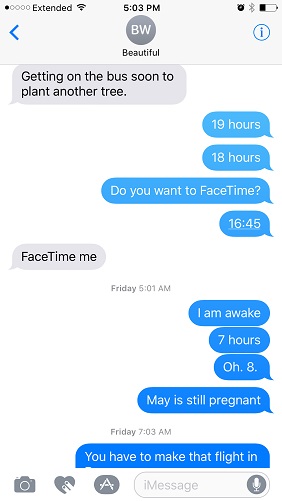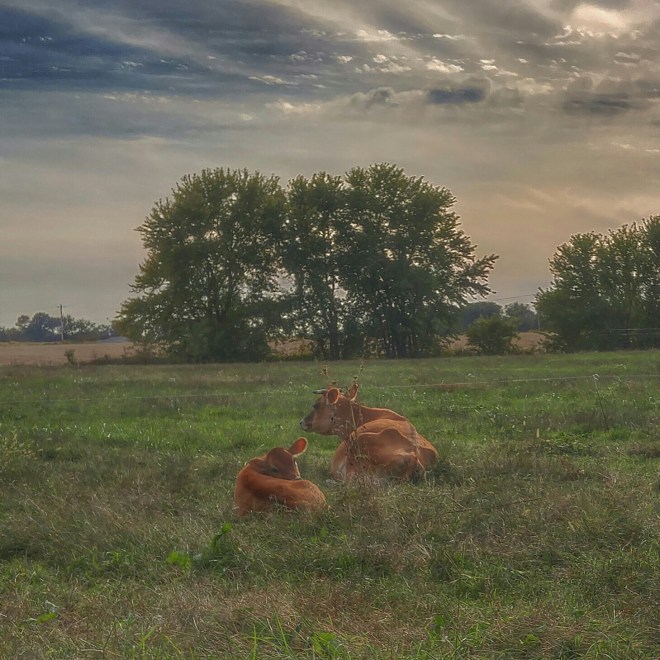I try to carry a theme of humility and ignorance on my blog. Another theme of my blog posts is I tend to start at the end.
I learned something recently. I have to be able to understand your issues without internalizing them. Additionally, I really treasure time with my wife.
So why is this important? And how does this relate to the farm? And why am I writing this in a public blog instead of just leaving a notebook for my kids to read later on? Because I say it is, because I believe it does and because my handwriting is terrible.
So with that out of the way, let’s start over. 14 months ago my youngest was diagnosed with cancer. For eight months my wife and daughter lived at the hospital for a minimum of 10 days each month. In addition there were trips to the ER, surgeries, blood work, checkups and infusions of poison…each with its own co-pay.

But I don’t want to talk about poisons and finances today. I want to talk about Julie.
I love Julie.
But I lived without her for so long I lost a level of intimacy with her.
Not just physical intimacy…which was obviously lacking when she was away. Real, personal interdependence. Need.
Friendship.
Julie is my best friend. I say that because you look worried.

Click link for image source
But that wasn’t the case for much of the summer. Julie was more like my roommate. Friends with benefits.
We identified this problem some time ago and sought out professional help. I guess it helped. I have gotten ahead of myself again. Let’s go back.
14 months ago I learned about pediatric oncology. Those two words do not belong together. It’s not like I was unaware of childhood cancer, it’s that I was insulated from it…either because I am shallow or because I am lucky. Please let me believe I am lucky.

On August 31 my life was normal. On September 1 the whole world was upside-down. Or downside-up. Or topsy-turvy. Skip it.
We found our way to the pediatric cancer floor of Children’s Hospital in St. Louis. A whole floor of sick kids. One girl we remember was in isolation for months. She was 11 and had leukemia. The bad kind of leukemia. Without treatment she would die. But treatment was killing her. So she lived in isolation. Every few weeks the nurses would allow her to move to a different room so she could see fresh scenery.
She died between Thanksgiving and Christmas.
I have a 14 year old girl. Believe me, I can imagine.
In fact, for a long time I could do more than imagine it. I could feel the pain of the other families on the floor.
But something began to happen. Slowly. I learned how to care without internalizing the pain of others.
To some of you that seems entirely obvious. But it was not easy for me. I would go to the hospital every day. I would ride the elevator with the other parents and I would take time to talk with them. One child was 7 months old, was born with a heart defect and was not eligible for a heart transplant. One child was 7 days old and could not draw breath on his own. One child was in an accident and had fractured his skull. Heavy stuff. And it all weighed on me. My own daughter, losing weight, feeling sick, throwing up, sleeping all of the time, fighting and crying to avoid the next painful round of breathing treatments, obviously depressed and extremely self-conscious about her little bald head…and then all of the weight of other sick kids in the hospital…the struggling families we were meeting.

Like Bruce. Bruce was a truck driver. His son was in prison. The son had 7 grandchildren all in foster care. Bruce had custody of his youngest grandson…the one with leukemia. Bruce and his wife just lived at the hospital with the boy…the 2 year old boy. The 2 year old boy who was on his second round of treatments. The boy died at Christmas.
How do the nurses and doctors deal with this pain?
How can Julie and I deal with it?
You know what? We don’t have to deal with it.
We have to support our daughter’s needs. Not that little boy.
One thing our daughter needs is a stable home.
Bruce also needs us. But Bruce doesn’t need us to take his grandson’s pain away. Bruce needs us to listen. To listen. Not to feel. To listen. To understand. To understand without internalizing.
But we did internalize. And it was killing us.
It caused each of us pain, individually. The weight of that burden, in addition to our daughter’s illness, was almost more than our relationship could stand.
So we sought help.
Rest assured, we sought professional help. From a real, licensed professional.
But I had a particularly difficult moment at work, cornered an executive, shut the door and, among other words, quit my job.
Now I didn’t lose my job at this time. I say that because you look worried.

Click link for image source.
I’ll summarize my list of complaints about myself. Everything I touch breaks, I’m tired, I’m not the right person for the job and I think I would be happier making sandwiches at Subway. I think that about covers it.
He corrected me that all of the technology I am responsible for at work is in better shape now than it was when it was handed to me. However, he thinks I probably am tired because I am still fixing problems. “There will always be problems, Chris. That’s why we need managers. You are a manager. You should not be fixing problems anymore. You should be managing them.” Thanks, Jim.
At the same time I was reading A Failure of Nerve by Friedman. Friedman says roughly the same thing. There are problems. Real problems. Some of these problems don’t have solutions. They have to simply be managed to mitigate the damage.
Living with crises is a major part of leaders’ lives. The crises come in two major varieties: (1) those that are not of their own making but are imposed on them from outside or within the system; and (2) those that are actually triggered by the leaders through doing precisely what they should be doing.
My daughter’s cancer was not of my own making. And there was nothing I could do to make it stop. We just had to manage it for the duration.
And when that battle ended we had a new fight on our hands. The emotional distance separating Julie from me was not of my own making. And there was nothing I could do to make it stop immediately. It took time. And patience. And change.
And here I sit talking of it in past tense. But that is inaccurate. This is our present battle. Every. Stinking. Day. is a fight for my marriage.
And it is more than just acknowledging that a marriage is more than sharing a house and a bed. This is an every day effort to meet her needs. And, beyond that, to help her to heal as well.
I had a hard time learning not to internalize the pain of others. In fact, we still struggle with it.
We met a boy recently who had a similar type of bone cancer to our daughter’s. He, too, had his fibula removed but his was transplanted to replace his left humerus. We met them at a fundraiser and shortly after he began to struggle with the combined weight of chemo and recovery from surgery. It was hard not to cry with the family. But that is not our battle. That is not our calling. That is not our purpose.
Certainly we reach out to that family and seek ways to support them. But their struggles are not our struggles.
I woke up one morning and realized Julie and I were next to each other but far, far apart.
That is our struggle.

How did this happen? I love Julie. She is my best friend. Or she should be…
I have given this subject some thought. I believe I prioritized the wrong problems. I fought the wrong battles. I empathized with the wrong people.
I avoided doing what I needed to do because it was hard. It is easy to sympathize with a family on 9. It is hard to deal with Julie honestly and openly. Especially when neither of us were in the wrong…we were just apart. That’s a tough problem to solve! And it requires more than just time. More than just trips away together. I don’t want to be overly prescriptive in this post because your marriage is not my marriage. I’ll just say I had to find ways to discover who Julie is today… 20 years and 4 children and 1 cancer after I met her. She is not the same person she was even 14 months ago. I am not either.
Marriage is hard but I think Julie and I are both fighting the right battle now. We were both distracted and our efforts were misguided. We suffered. But I think we are back on track.




















